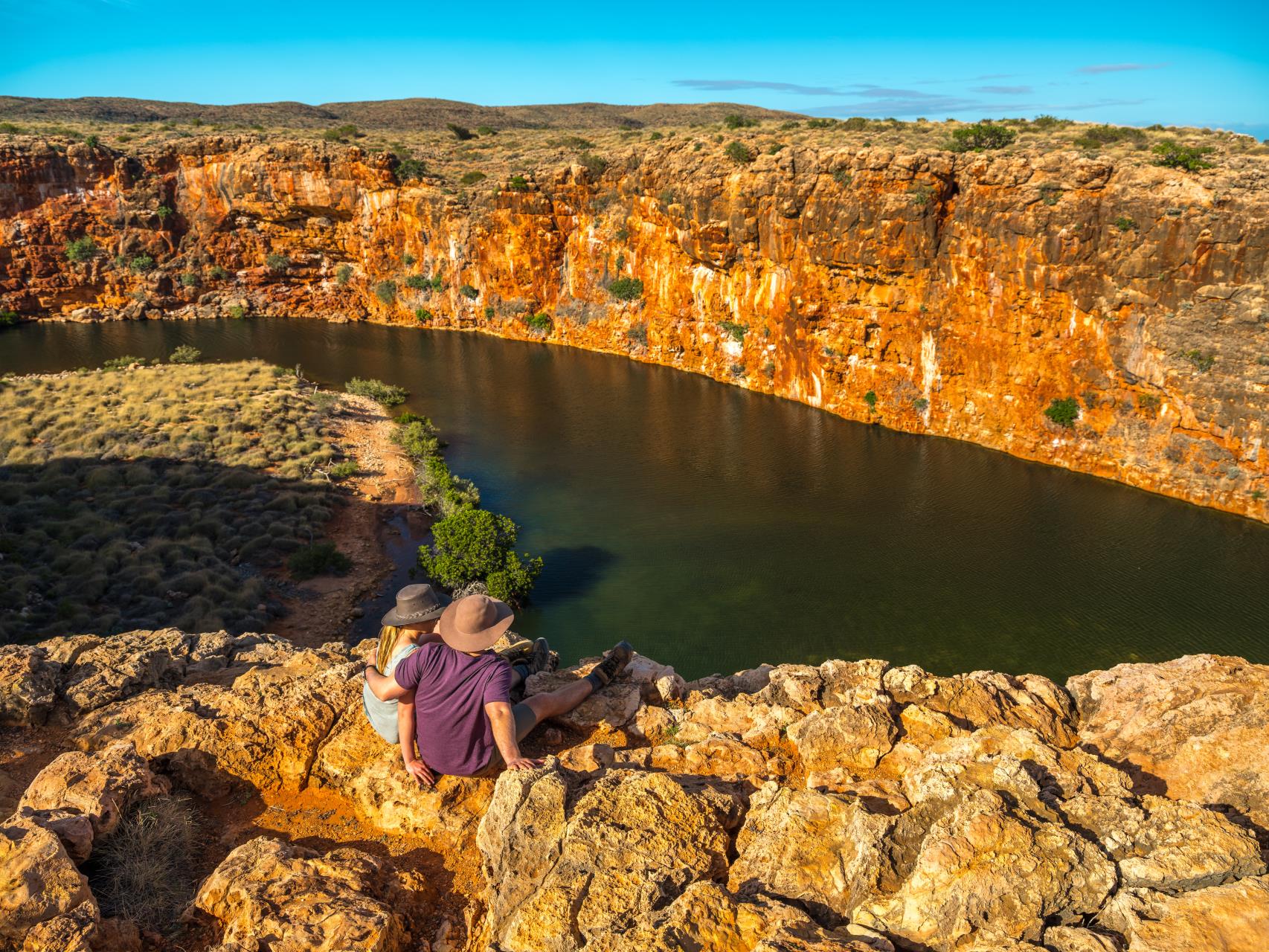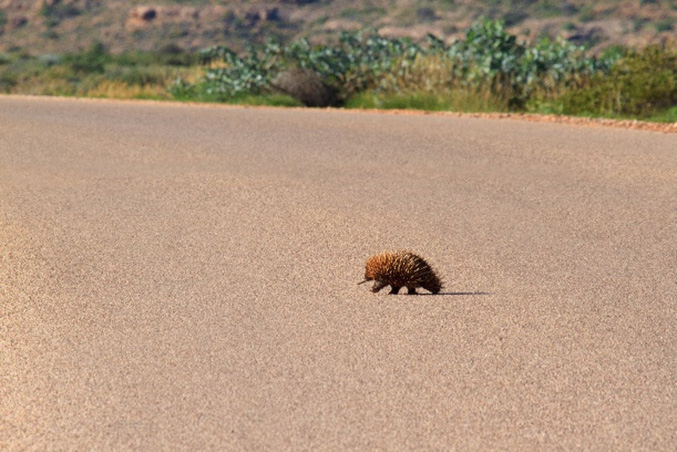Cape Range National Park

Situated on the west side of the North West Cape is the Cape Range National Park; a spectacular place of rugged limestone ranges, breathtaking deep canyons and 50km of pristine beaches.
The park covers some 50,581 hectares and there is an abundance of wildlife to be found; birds, emus, echidnas, lizards, wallabies, kangaroos and dingoes all call the Cape Range National Park home.
Cape Range offers a variety of attractions and activities for visitors interested in the natural environment.
Wild Flowers: Due its continued isolation there are some species of plants and animals that are endemic to the area, including the white centred variety of the Sturt's Desert Pea. Surveys have recorded over 630 species of flowering plants on the peninsula and within the Cape Range National Park.
 Caves: Over 700 caves are catalogued in the area and it is likely that many remain undiscovered. There are numerous gorges and sanctuary areas that provide a haven for wildlife and contain rare and unusual flora.
Caves: Over 700 caves are catalogued in the area and it is likely that many remain undiscovered. There are numerous gorges and sanctuary areas that provide a haven for wildlife and contain rare and unusual flora.
Stay Alert: Wildlife is often encountered on all roads within the Cape Range National Park, so please drive slowly and carefully.
Driving around dawn, dusk and through the night when the local wildlife is most active is not recommended.
Cape Range National Park – West Side
Mangrove Bay: This sanctuary zone area includes a bird hide which overlooks a lagoon area. A variety of birds roost in the lagoon at high tide and many feed on small fish and other marine life in the shallow waters. Closer inspection may reveal an osprey or brahminy kite perched above surveying the coastline
Milyering Discovery Centre: The Cape Range National Park's visitor centre, is 52km from Exmouth. The Milyering Discovery Centre contains interpretive displays, audio-visual facilities and information on the National and Marine Parks. National Park rangers are also on site to assist with enquiries.
Mandu Mandu Gorge: A 3km walking trail allows access into this dry gorge. The trail starts at the end of the Mandu Mandu track and follows the northern ridge of the gorge, offering stunning panoramic views. The trail then leads down into the creek bed from where you follow the base of the gorge back to the car park.
Yardie Creek: The sealed road from Exmouth through the Cape Range National Park ends at Yardie Creek. Centuries of erosion have formed a spectacular multi-coloured gorge here that cuts deep into the limestone of the Cape Range.
Yardie is the only gorge in the area with permanent water, however, this is salt water fed from the ocean. This interesting ecosystem has mangrove areas that provide roosting sites for many bird species.
Hidden within the safety of the gorge walls is a colony of rare black-footed rock wallabies. These timid creatures seek shelter on ledges along the gorge walls, resting during daylight hours before coming out to feed in the cool of the night.
There is a relatively easy walking trail along the top of the northern wall of the gorge or you can join a boat cruise through its cool depths.
Cape Range National Park – East Side
There are two unsealed but fully formed roads that run from the Minilya-Exmouth Road into the Cape Range National Park. These provide spectacular scenic drives with bush walking opportunities.
Shothole Canyon Road: The access road to Shothole Canyon turns off the Minilya-Exmouth Road, 14km south of Exmouth. The canyon was named after the shotholes left by the explosive charges detonated to trigger miniature earthquakes for seismographic studies during the oil searches in the 1950s.
The rough gravel track meanders over dry creek beds along the gorge floor and offers visitors close examination of the colourful rock layers of the sheer canyon walls. At the end of the 15km track there is a picnic area and a short walking trail.
Note: Shothole Canyon Road is suitable for four-wheel drive vehicles only
Charles Knife Gorge Road: This scenic drive turns west off the Minilya-Exmouth Road, 21km south of town. This mostly gravel road follows the razor-backed ridges of the range and provides breathtaking downward views into the stark, multicoloured gorges. There are several lookout points that provide fantastic photo opportunities and a marked walking trail from Thomas Carter Lookout. Conditions of the walk trail depend on rainfall.
Please contact the Parks & Wildlife Exmouth for a walk trail guide for the Cape Range National Park.
Important
- Caution should be taken when bushwalking in the canyon areas as walls are steep and can be dangerous due to loose surfaces.
- Don’t go on your own - always let someone know where you’re going and when you’ll be back.
- Cave areas are unsafe due to oxygen deficiency - for your own safety please remain on existing walking trails.
- Avoid walking in the middle of the day and always carry water.